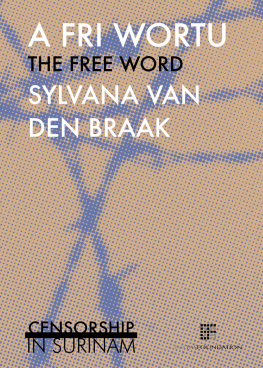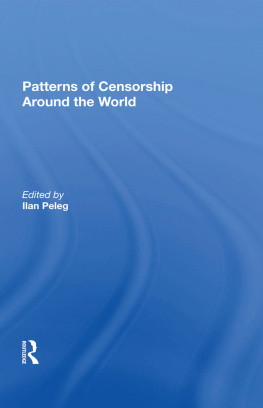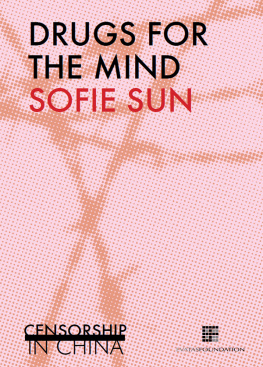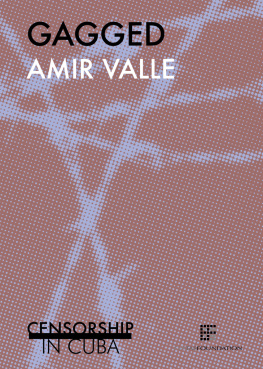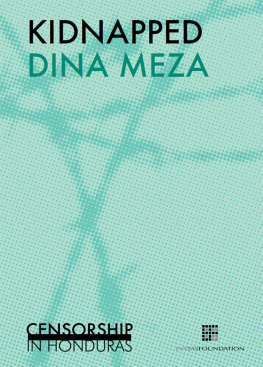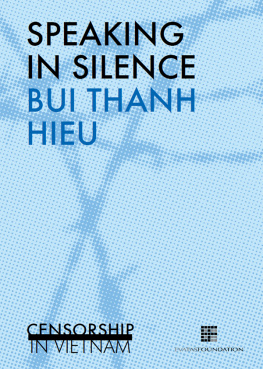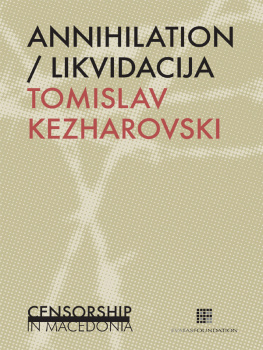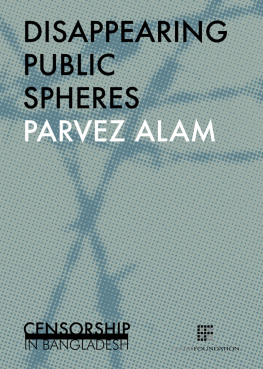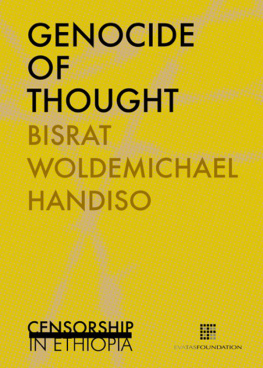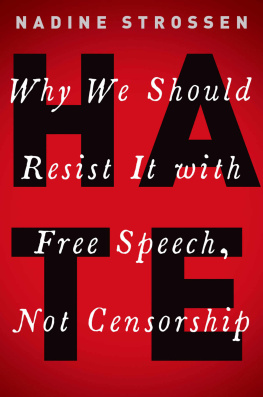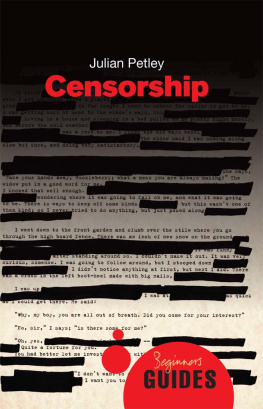Sylvana van den Braak
CENSORSHIP IN SURINAM

Eva Tas Foundation | Amsterdam
Dedication
For my parents Frans van den Braak and Henritte van Riet and my brother Gianni van den Braak. They always supported me and taught me to undertake everything with passion. And for Alphons van den Braak. Alphons was a young man who, when he had a job at a greengrocers, refused to sell Outspan oranges while wearing a T-shirt with the text: Dont exploit a South African; who persuaded people to sell their mopeds to save the environment, and who tried to help create a better world as a Third World shop attendant and as a newspaper writer. In short: a man who fought for his convictions.
Preface
The title of this booklet is A Fri Wortu, which is an expression in Sranan Tongo. It means The Free Word. Sranan is a crude street language. It is known to be honest, even a bit rough from time to time. The official language in Surinam is Dutch which is spoken by people working for the government and the media. Dutch is also the language of instruction at schools.
This booklet is the elaboration of the thesis I wrote about press freedom in Surinam which in turn was based upon my five-month internship at Parbode Magazine. During this internship I fell in love with the country, its culture and people, as well as with all the colleagues involved in journalism. The story I wrote is above all a tribute to all those brave journalists who day in, day out attempt to produce first class journalism. My cooperation with, and talking to, so many passionate journalists, who, despite many setbacks, continued to fight for press freedom, for freedom of expression, and for high quality reporting, inspired me beyond measure.
When I flew back from Switi Sranan to Holland on 27 January 2014, I simply could not get Surinam out of my mind. I sincerely hope that you will enjoy reading this booklet as much as I enjoyed writing it. I wish you a lot of reading pleasure, in Sranan: Mik wang swite leisi presir! However, I must admit that the word pleasure is not very appropriate given the contents of this booklet.
Sylvana van den Braak
Amsterdam, May, 2017.
Introduction
Put Surinam in context, Sylvana. This is, time and again, what an inspiring Surinamese journalist emphasized during my research of journalism in Surinam. Taking this advice at heart, I kindly request the reader to read the following attentively and to keep it in mind when reading this booklet:
Surinam is growing every day. Every week, every day, there are new developments. One simply cant compare this county with any other country, as it is still so young. Every country is undergoing a process of change and development. This insight is often forgotten, since many Western countries have already centuries of development behind them. At the present time a lot of developments take place in Surinam. I have done my best to capture them in this booklet. As one can read, the country is growing, but this goes with ups and downs. At any event, I believe that Surinam possesses a great deal of zxpotential.
Second home
Surinam, a small and for many people, an unknown country in South America, is perhaps the most impressive and extraordinary country I know. Its warm inhabitants, Surinamese poku, its delicious food and its pure jungle; in short, never in my life have I encountered such warmth and wealth. The moment you arrive at the airport, you smell the typical tropical Amazon smell. You feel the heat that makes you sweat which some people find unpleasant. But for me it felt like coming home: Surinam is my second home!
On 5 September 2013 I flew for the first time to Paramaribo, Surinams capital, for my internship as a journalist at the Parbode Magazine. I was amazed to encounter a completely different environment, countrywise and workwise. My new colleagues told me a lot of stories about their profession and about press freedom. Gradually I realized how much more difficult it is to write in a critical fashion in Surinam as compared to my home country, The Netherlands.
Factors
There are three universal factors that are crucial for journalists to report freely. The first factor concerns the legal framework: does the law allow journalists to publish all collected information and at the same time does the law provide protection for journalists? The second factor is political freedom. This concerns how this freedom is enacted in law and how this freedom can be enjoyed in practice. Finally, there is the third factor: economic freedom. This factor is often forgotten. The central question is: does the media environment pay its journalists sufficiently to allow them to do their work independently, so that they are immune to bribes and other corrupt practices, and free from pressure from politicians and entrepreneurs. True, a lot has improved as regards press freedom, but how much leeway does the press have, and even more important, how much does the Surinamese press claim at present?
Journalism in Surinam is as fertile as the countrys soil. It has the characteristics of journalism at the local level. As a result of Surinams small population, the journalist is in a position to tell personal stories which are quite easily recognized by many readers. Moreover, there is a multitude of extraordinary material available that has not yet reported or even discovered. What a journalist writes about can make the difference. On the other hand, there are hindrances and setbacks journalists are confronted with in their day-to-day work. The influence exerted by politicians and entrepreneurs come to mind in this respect. And there is the issue of the poor salaries that journalists earn; the downside of a small community; self-censorship and poor schooling.
These factors are just a few of many that impinge upon journalism; together they create an adverse reporting environment. The biggest problem is that all the factors put together, perpetuate the situation. Given this adverse environment, journalists do not only encounter hindrances in the execution of their work, but they also apply self-censorship. It is difficult to ignore the drawbacks. There is not a single solution as the situation is quite complex.
As a consequence of the limited quality of journalism and limited press freedom, the citizens do not always receive the objective information they need to form their own opinion. This is an affront to democracy. In the following chapters the factors dealt with in this introduction will be elaborated.

Nita Ramcharan: The fact that Leslie lost his life because he defended the free word is the reason that I chose this profession. I continue his work.
After the former fianc of Nita Ramcharan was deprived of life during the December murders in the 80s, she decided to swap her job as a teacher for journalist. After having been editor at the Ware Tijd, she has set up her own newsite Star News. Her biggest motivation for this was the influence of media owners on the journalistic content. With Star News she wants to do it differently, which means for her: journalism without hidden agendas.
Chapter 1 Blind Eyes
Surinam is a young country, having gained independence in 1975. The country has lived through a lot of experiences. This chapter describes the history of the Surinamese press: a succession of periods of relative press freedom and periods of strict censorship.

